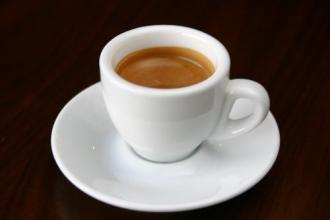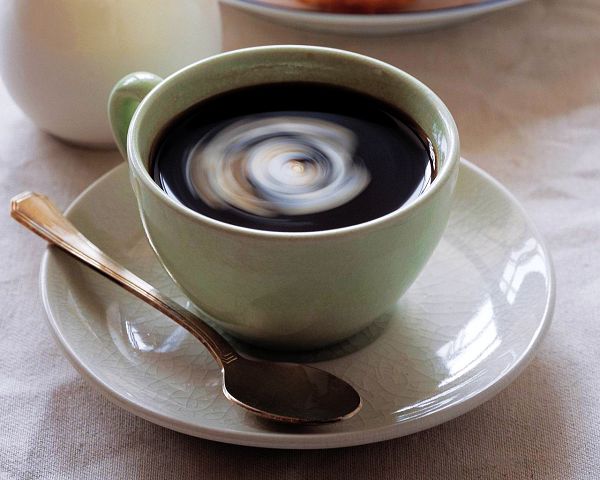The course of espresso: the definition and standard of Espresso espresso
Espresso originated in Italy and is regarded as the three national treasures by Italy together with "Fashion, Food". When it comes to China, it also has more names, such as espresso, espresso, espresso and so on. With the increasing popularity of coffee, its name is gradually unified, either directly by "Espresso" or by "espresso".
What does Espresso mean? Some people say that the word has something to do with the English word espress, coupled with the unique way of making fresh drinks at the Espresso bar, so Espresso stands for on the spur of the moment and just for you translated into Chinese as "coffee made quickly on the spot" and "coffee made specially for you". Most people still think that the name Espresso emphasizes the meaning of rapid extraction or super enrichment of its characteristics.
WBC (World Barista Championship) has the following basic settings for Espresso:
1, capacity. The amount of coffee is lounce (including crema, between 25~35ml)
2, water temperature. It was extracted with water with a water temperature of 90.5-96 degrees.
3, air pressure. The pressure is 8.5 to 9.5 atmospheres.
4, time. The extraction time is 20: 30 seconds.
5, jet lag. The Espresso extraction time difference of each coffee is less than 3 seconds.
6, coffee cup. Espresso must be crashed into 60~90ml 's container with a special coffee cup with a cup ear. The special coffee cup has a unique name demitasse cup.
Combined with the description in WBC, the definition of Espresso is summarized as follows:
Espresso refers to the coffee with golden grease extracted from 90.5 to 96 degrees water at 8 to 10 atmospheric pressure in 20 to 30 seconds, 25~30ml.
In addition to meeting these hardware requirements, a qualified Espresso also has corresponding requirements on the state of the extracted Espresso, such as the thickness and color of the crema, as well as the taste of the Espresso, and stipulates that the qualified Espresso should have a balanced taste.
The coffee made by many extraction methods other than Italian concentration emphasizes the maximum embodiment of the flavor of the coffee itself, that is, the pursuit of the flavor of the coffee from the place of origin, from roasting to grinding to extraction, which is always required to reflect the flavor of the coffee from the origin of the coffee. therefore, in addition to the method of Italian coffee extraction, whether it is hand bubble, siphon or pressure pot, although the extracted coffee is different in flavor. But the difference only lies in which extraction method better and more perfectly reflects the original flavor of coffee.
The world of Espresso completely subverts this set of principles. In the world of Espresso, there are unique standards different from other extraction methods, from the initial selection of coffee beans to blending, to grinding and extraction.

Source:
Happy Coffee Xiao Xu's blog
Important Notice :
前街咖啡 FrontStreet Coffee has moved to new addredd:
FrontStreet Coffee Address: 315,Donghua East Road,GuangZhou
Tel:020 38364473
- Prev

The course of Italian Coffee: a detailed introduction to the cause and Operation of American Coffee (Americano)
American coffee, Americano. American coffee is the most popular coffee in a coffee shop besides milk coffee. If milk coffee is mostly loved by women, American coffee can be regarded as a very neutral coffee, and the popularity of ta is basically the same between male and female guests. What is American coffee? American coffee, to put it simply, is suitable.
- Next

Coffee FAQ: identification between Italian coffee Espresso and single coffee
First, a brief introduction to the concept of espresso and single coffee. Espresso: if you want to use the data for a general explanation, it means that 7g of powder is extracted by water at 92 degrees at nine atmospheres for 25,30 seconds to get 30ml coffee. The resulting 30ml coffee is called Espresso. Individual coffee: made from only coffee beans from a country or a producing area.
Related
- What is the meaning of lactic acid fermentation with coffee bean treatment?
- How to judge the state of foam by sound?
- How does the latte pull out the unicorn pattern? Come to get for a little trick to improve the flower pull!
- Will flower pulling affect the taste of the latte?
- Do you know the history of coffee?
- The difference between honey treatment and sun washing what is raisin honey treatment?
- What kind of milk can a novice use to make coffee foam to keep the foam longer? The correct method and skills of milking tutorial sharing
- Why do washed coffee beans taste sour? Flavor characteristics of washed Coffee
- Introduction to the skill of how to practice the size and height of water injection around the circle of hand-brewed coffee
- How do beginners practice coffee flower drawing from scratch?

